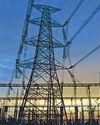
The US has been the largest market for India's IT services industry for decades, with companies like HCL, Infosys and TCS providing outsourced services to American firms across sectors. About 55% of India's IT sector revenues come from that region. However, a second term in power for Donald Trump in the US raises new concerns for this industry. Among these are changes in America's HIB visa program, potential tariffs and other regulatory shifts.
During his first presidency, the Trump administration made substantial changes to the HIB visa scheme, which is the lifeblood of the Indian IT industry's operations in the US. HIB visas allow skilled foreign workers, particularly in the tech sector, to work in the US temporarily. Indian IT firms heavily rely on these visas to send skilled talent from India, filling in-demand roles at client sites across the US. But Trump's policies included tightening the eligibility criteria, raising the wage floor for HIB workers, and even suspending the issuance of new HIB visas during the covid pandemic. These changes made it more difficult and costly for Indian firms to deploy their employees on US soil.
These policies also meant higher operational costs and a slowdown in visa approval, thus disrupting project timelines. Many companies were forced to raise their hiring of US nationals, driving up labor costs significantly. The second Trump term could see the reinstatement or further tightening of these policies, putting pressure on Indian firms to cut reliance on HIB visas.
この記事は Mint Mumbai の November 12, 2024 版に掲載されています。
7 日間の Magzter GOLD 無料トライアルを開始して、何千もの厳選されたプレミアム ストーリー、9,000 以上の雑誌や新聞にアクセスしてください。
すでに購読者です ? サインイン
この記事は Mint Mumbai の November 12, 2024 版に掲載されています。
7 日間の Magzter GOLD 無料トライアルを開始して、何千もの厳選されたプレミアム ストーリー、9,000 以上の雑誌や新聞にアクセスしてください。
すでに購読者です? サインイン

World Bank calls for reforming skills training in India
India must make a coordinated effort to reform and rebrand vocational skill training, besides aligning education with the job market, to leverage its demographic advantage to meet the $5-trillion target for its economy, the World Bank said.
FCPA cases take long to conclude after indictment
For investors keen to know the fate of billionaire Gautam Adani's indictment by US authorities, the watchword is patience.

Short-covering, relief rally add ₹7.27 trillion wealth
Markets up 2.39% to hit the highest in six months, a day after Adani's indictment

Wetter monsoon slows pace of adding new transmission lines
India's addition of new power transmission lines fell by half over a year earlier in the April-October period as a wetter-than-usual monsoon slowed work.

COP29's $1.3 tn fund plan disappoints Global South
The 29th edition of the UN climate change conference in Azerbaijan emerged from a deadlock with an annual climate finance goal of $1.3 trillion for developing countries, much to the disappointment of the Global South.

Jaguar rebrand is pink, diverse and doesn't feature any cars
Luxury automaker Jaguar is betting that a colorful and youthful rebrand will help it successfully launch fully into the electric-cars market.
Services up as manufacturing slows in Nov
The HSBC Flash India Services PMI was at 59.2 in Nov from 58.5 in Oct; manufacturing PMI fell slightly from 60.4 to 60.2

MSMED may protect medium firms too
The Centre may consider including medium enterprises for the protection granted under MSME Development (MSMED) Act, 2006, to resolve payment disputes.

Europe boosts Indian textile exports in FY25
Demand for Indian handloom, apparel partly fuelled by Bangladesh crisis
RBI nudges banks to cut speculative bet in rupee
The Indian central bank, in a rare move, instructed some banks to cut their long positions on the dollar-rupee pair on Friday, seeking to curb speculative positions with the currency at a record low, four bankers familiar with the development told Reuters.